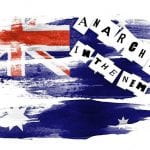Around The Web
Plastic recycling firms accused of abusing market
Mission to Mercury: BepiColombo spacecraft ready for launch
Free rooftop solar for low-income households in NSW govt deal
 NSW government trial will install 2.5kW of rooftop solar, free, for low-income households that forego their energy rebate.
NSW government trial will install 2.5kW of rooftop solar, free, for low-income households that forego their energy rebate.
The post Free rooftop solar for low-income households in NSW govt deal appeared first on RenewEconomy.
Microgrid funding to help Yackandandah reach 100% renewables
 Victorian government backs microgrid in Victoria's north-east that will trial the use of solar, storage and smart controls at the grid edge.
Victorian government backs microgrid in Victoria's north-east that will trial the use of solar, storage and smart controls at the grid edge.
The post Microgrid funding to help Yackandandah reach 100% renewables appeared first on RenewEconomy.
WA buy-back of taxi plates exempts electric vehicles
 EVs used for on-demand transport services will be exempt from a buy-back levy the WA government is considering to fund a taxi plate "buy back" scheme.
EVs used for on-demand transport services will be exempt from a buy-back levy the WA government is considering to fund a taxi plate "buy back" scheme.
The post WA buy-back of taxi plates exempts electric vehicles appeared first on RenewEconomy.
Victoria report says autonomous and shared vehicles will save lives, billions of dollars
 Infrastructure Victoria report finds $15bn in benefits and a 94% reduction in traffic accidents from shared and autonomous driving.
Infrastructure Victoria report finds $15bn in benefits and a 94% reduction in traffic accidents from shared and autonomous driving.
The post Victoria report says autonomous and shared vehicles will save lives, billions of dollars appeared first on RenewEconomy.
A14 road workers find woolly mammoth bones
Australia offset issuance drops to 37k
Why is this African town letting mosquitoes in?
Mercury: Learning from the strangest planet
The Highway Code review is good news for cyclists but should just be the start
Close passing and dooring are serious concerns but there is more to be done to make our streets safer and cleaner, from funding boosts to road planning
The announcement of a Highway Code review for walking and cycling is a forward step for active travel and road safety. It may not be the millions of pounds of investment needed, but it’s a start.
The Department for Transport (DfT) review will cover issues such as how to safely overtake cyclists, guidance on preventing car-dooring of cyclists, and giving pedestrians and cyclists the right of way at side roads.
Continue reading...Dingo dinners: what's on the menu for Australia's top predator?
National Taxonomy Research Grant Program 2019-2020 - Open for Capacity-Building Grant applications
National Taxonomy Research Grant Program 2019-2020 - Open for Research Grant applications
GoodWe & Tigo optimization solutions, now available
 After a long period of rigorous and comprehensive compatibility tests with the Tigo products, GoodWe finally is starting to take orders this month for its new single and three phase inverters with smart solution for module-level monitoring, rapid shutdown and optimization integrated.
After a long period of rigorous and comprehensive compatibility tests with the Tigo products, GoodWe finally is starting to take orders this month for its new single and three phase inverters with smart solution for module-level monitoring, rapid shutdown and optimization integrated.
The post GoodWe & Tigo optimization solutions, now available appeared first on RenewEconomy.
Jurassic-era piranha is world's earliest flesh-eating fish
Second wave of big batteries about to join Australia’s main grid
 The second wave of big batteries – two in Victoria and one in South Australia – are going through the commissioning phase, and should be ready to join the main grid in time for the coming summer.
The second wave of big batteries – two in Victoria and one in South Australia – are going through the commissioning phase, and should be ready to join the main grid in time for the coming summer.
The post Second wave of big batteries about to join Australia’s main grid appeared first on RenewEconomy.
Minister Price is not right
 When the lights are on and the cameras are rolling, most government Ministers know that they must at least pretend to believe in and care about the impacts of climate change.
When the lights are on and the cameras are rolling, most government Ministers know that they must at least pretend to believe in and care about the impacts of climate change.
The post Minister Price is not right appeared first on RenewEconomy.
Energy Anarchy? Bring on the customer revolution!
 Big energy CEOs believe there is still reason to be optimistic. It just wasn’t clear whether they were addressing their shareholders or their executives. Certainly not their customers.
Big energy CEOs believe there is still reason to be optimistic. It just wasn’t clear whether they were addressing their shareholders or their executives. Certainly not their customers.
The post Energy Anarchy? Bring on the customer revolution! appeared first on RenewEconomy.
Do consumers want to pay reliability premium in era of rooftop solar and storage?
 What is the cost, or value, of power outages? It may come down to whether you like cooking or not. The energy regulator is trying to find out. Seriously.
What is the cost, or value, of power outages? It may come down to whether you like cooking or not. The energy regulator is trying to find out. Seriously.
The post Do consumers want to pay reliability premium in era of rooftop solar and storage? appeared first on RenewEconomy.



